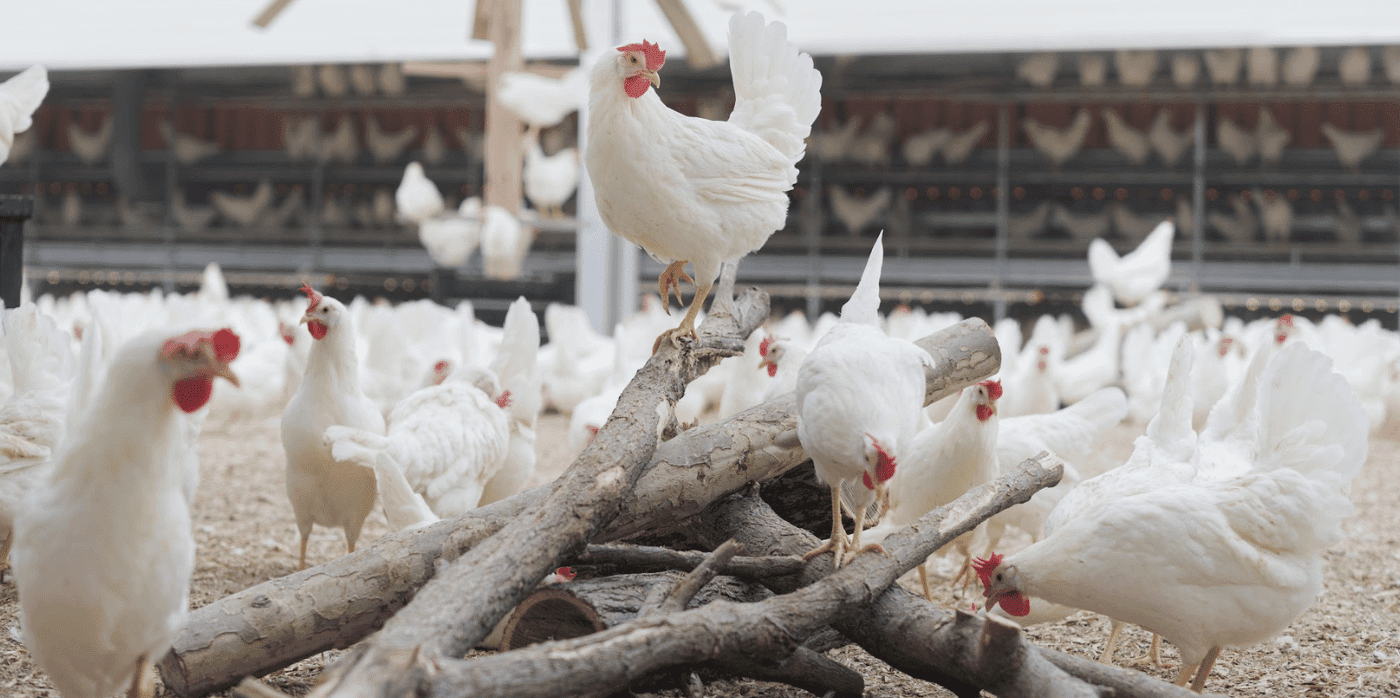
Spotted: Although not as polluting as cattle or pigs, poultry rearing still contributes around 790 million tonnes of CO2 equivalents each year. The equates to around eight per cent of all agriculture emissions. Much of this comes from feed, heating and lighting, and manure. But now, Dutch egg farm Kipster is pioneering a carbon-neutral approach that could be the future of poultry farming – and the company is bringing it to the US.
Kipster has partnered with Kroger groceries and MPS Egg Farms to bring its sustainable egg farming stateside. Kipster’s techniques begin with reducing greenhouse gas emissions internally as much as possible, and offsetting any remaining emissions with external carbon reduction projects. Internal measures include turning surplus food into chicken feed, rather than growing feed on land that could be used for human food production.
The ‘upcycled’ chicken feed uses by-products from crop and food processing, such as oat hulls and faulty pasta. The upcycled feed has a carbon footprint of around half that of conventional feed. Kipster’s farms are all specially designed to allow the birds to carry out their natural behaviours, reducing the need for trimming beaks and administering antibiotics. Kipster is also the first farm to remove dust, odour, ammonia, and other undesirable particles from the barn air, as well as recovering the heat using a heat pump.
Denise Osterhues, Kroger’s senior director of sustainability and social impact explains: “Choosing Kipster cage-free eggs is an easy way for our customers to help create a more sustainable food system.”
As people become more aware of the emissions cost of rearing animals, many are turning to alternatives – and innovators are keeping up with the demand. Springwise has recently spotted many types of sustainable foods, including cultivated pork made using microalgae, and a sustainable, cocoa-free chocolate.
Written By: Lisa Magloff

